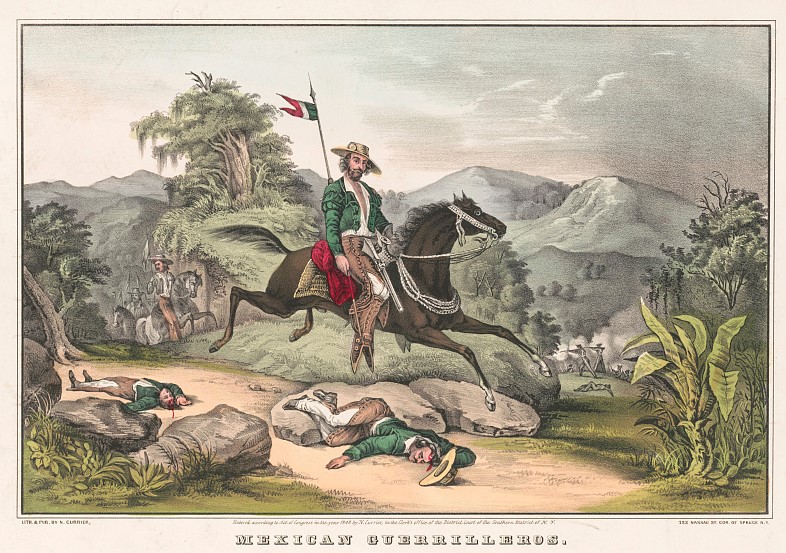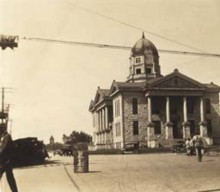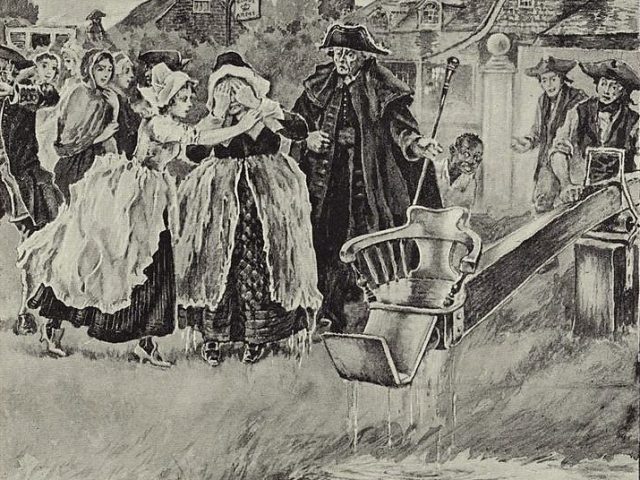To say that there was suffering for water goes without saying…
MEXICAN WAR REMINISCENCES
Part V
By Judge Zo. S. Cook
(These several contributions cover the period of February to April, 1897, and were made to the Wilcox Progressive Era, published at Camden)
Article 5
We remained stationed at this camp till about the first of March, when we were relieved and ordered to march back to Vera Cruz. Arriving there we were immediately attached to an expedition under the command of Gen, Bankhead to go into the interior and occupy the cities of Cordova and Orizaba, With this command, was the 13th Ala. Regulars; four pieces of artillery commanded by marines; the Alabama Volunteers under Col Seibles; a Michigan Regiment of volunteers; and a battalion of cavalry. The whole command consisted of about three thousand men. The route is known now as the southern road from Vera Cruz to City of Mexico.
Our first day’s march was over a ledge of sand hills, the most difficult to travel of any road ever before encountered. The sand was knee deep to horses and mules, as well as soldiers, An ample supply of Army wagons had been furnished to haul supplies, ammunition, baggage, and each wagon drawn by four mules. The mules were young, unbroken natives, with all the mean, vicious traits of the race. They had never been hitched up before, save the wheel mules to each wagon. The soldiers had to carry the wagons up the sand hills by main strength, with all the push and hurry that could possibly be made. We only covered five miles.
Suffered for lack of water
Water was not to be had, except such as each one carried in his canteen. To say that there was suffering for water goes without saying. The second night we got through the sand bed and encountered a treeless plain, where water still was very scarce. Our camp the second night was at a shallow well, the usual camping place for caravans. The water was in very limited quantity. Gen. Bankhead had a guard placed around this well with orders to let no one have a drop of water till his own staff, as well as their horses, had been supplied. This caused great indignation and it was with difficulty that an outbreak and revolt was prevented. By midnight, each man had succeeded in getting about one pint of water. It was measured out according to seniority of rank, thus making our poor little battalion the last to get water—however it was probably the best in the end. We had the well and got the full benefit of all it would give, the water seeping in slowly.
Army completely exhausted
At the third night, we camped at the river San Diago just eighteen miles from Vera Cruz. The men were completely exhausted by the severe trials of the past three days. The exhausted condition of the little army induced Gen. Bankhead to rest at this camp for three days, a rest very much needed and enjoyed. Fish could be seen in countless numbers, sporting at the bottom of the stream. They appeared near enough to the surface to reach down and catch with the hands, but the depth was as deceptive as distance mentioned before. Bathing was in order, hundreds could be seen daily sporting in the water. Many would dive with the intention of going to the bottom, thus disturbing the many fish in sight, but not one could go deep enough to appear more than a few inches below the surface. Some men tried it who were known to be skilled divers but with no better success.
Rumors prevailed
In all soldiers’ camps rumors are rife. This was no exception. Daily news through the camp was flying that a Mexican force was in the neighborhood awaiting a favorable opportunity to give battle. Scouts were kept going all the time to prevent a surprise. Strong pickets were kept posted, particularly at night. The pickets were instructed to shoot at anyone approaching on horseback without hailing.
One night an alarm was given, the long roll beat. Men turned out into line promptly. A force was sent in the direction of the picket post that gave the alarm. On arriving there, it was found that a drove of wild jacks and jennets had been alarmed and came near, near running over the picket in their stampede, Chris West of Capt. Irby s company, who gave the alarm, said he thought there were a thousand Mexicans coming on them, nor did he know any better till one brayed in his fright.
On the road again
After resting several days, we were again on the march on a comparatively hard, firm road. The country was bare of timber; chapperel bushes thick, each bush was covered with long, sharp thorns the size of a cock’s spur. The trouble we labored under was scarcity of water, requiring long marches to reach a suitable camping place. The raw, unbroken mules, geared to wagons, gave a great deal of trouble, causing constant delay. The command was not permitted to lengthen out or scatter, causing a long unprotected line. Consequently, when a wagon would break or any other accident happened, the whole line had to halt to await repairs.
One unaccustomed to the rules of the army on a march would think that the number of wagons and other vehicles were largely in excess of the real needs of the expedition. When the whole army was at rest and the order given to go ahead, it would taken an incredibly long time before the line could be got in motion. The soldiers were distributed along at intervals, in such manner as to protect the train from surprise and capture by guerrilas. In this way the command was scattered for miles along the road, giving it the appearance, when viewed from some emminence, of a great serpent crawling along the surface of the country.
Snowy peak of Oriziba
During this march to the interior, not a moment in the day intervened but that one could look ahead and see the snowy peak of Oriziba. Day by day it came plainer to view; no grander sight could be seen than this mountain with its perpetual snow and a little cloud that hovered about its top. This part of Mexico is entirely below the frost line.
Although it was early spring, the suffering from heat and thirst was great, particularly among the Michigan soldiers. They were in a pitiable state, just from that extreme northern clime and thrown in only a few weeks to a sultry country was more than nature could bear. Many of them had to be carried in wagons and ambulances. It was very different with the southern boys. They stood it manfully and were always cheerful and full of life. This Michigan regiment was composed of as fine a set of men physically as could be seen in any army; they were stout, handsome fellows and ready to fight at any time if the word was given. No doubt soldiers from that state in the late war did their duty manfully.
Ascending the mountains
The approach to the range of mountains was gradual and the scenery sublime. We travelled two days with the belief constantly that the foot of the mountains would be reached. The distance was so deceiving that it appeared a stone could easily have been thrown upon the side of the mountain; trees, rocks, gulches could be plainly seen. How we could ascend was a problem that bothered all.
Finally, after a few hours rest, and an early start in the morning, the trouble of ascending began in earnest. A squad of men was detailed daily, called sappers and miners, whose business it was to go ahead and work the road, so as to enable wagons to pass. The road had been built in the early conquest of Mexico by the Spaniards, and the engineering feat of making a road up to this mountain is one of the wonders of the country and shows a degree of skill that would be considered a great feat for the advanced scheme of the present day.
This road is literally cut out of the side of the mountain, one side being a perpendicular wall overhung the road, and the other a perpendicular wall reaching in places more than a hundred feet. This latter wall being built of stone as regularly made and cemented as the finest building. The surface was as smooth as rock pavement in a populous city, except an occasional hole broken, needing filling by the workers. The lower side of the road had a raised border some four feet high to prevent accidents by falling over the bluff. It is not known for certain when this road was built. No doubt the date can be fixed by examining old Spanish documents on file. It was certainly several centuries ago and must have required a large expenditure of money, to say nothing of labor.
Crosses of accidents
It is a custom in Mexico, and has been since it was first settled by the Spaniards, to erect across at every point or place where an accident happened resulting in death, and this was the case whether it was homicide or accident. Not a moment but what a cross was in sight. These are religiously renewed from time to time when they fall down from decay. Each cross, could they have been endowed with speech, could have told a story of some one dying on that spot; could have told of some heartbroken wife, mother, father, brother, or sister. It was truly bad to see so many; it was like traveling through a large graveyard where sleep the unknown dead.
The ascent was so gradual and easy that we could hardly realize that we had mounted thousands of feet above the plain we had just left. We camped, after a tiresome day’s march, on the summit of the mountain at a small village or camping ground, with a pretentious little chapel, where the devotees of the followers of the Catholic faith could say their prayers and make their offerings as they passed this highway,
This was quite a noted stopping place for caravans on their voyage from the interior to the coast and return, Here we found aquagienti arid mescal plentiful, and it wasn’t long before its effect was seen on many of the soldiers. The officer of the day and his guards had all they could do to take care of the number placed under arrest. Men who were not in the habit of becoming intoxicated unexpectedly got tipsy, often on one drink. They were not accustomed to the stuff, consequently didn’t know how to gauge a drink. One drink, however, was usually enough to satisfy any but an old toper with a copper-lined stomach. It was amusing to see a novice take a drink of this vile stuff and run for water, holding his breath in the meantime.
SOURCE
The Alabama Historical Quarterly, Vol. 19, Nos. 03 & 04, Fall and Winter Issue 1957
ALABAMA REVOLUTIONARY WAR SOLDIERS VOLUME II
After the Revolutionary War, free bounty land was offered by the federal government to citizens and soldiers for their service.
This book is the 2nd Volume in a series of books which includes genealogical and biographical information on some Revolutionary Soldiers who were in early Alabama and/or collected military pensions for their service. Some of their descendants still remain on the bounty land they received. The soldiers in this volume include: JACOB HOLLAND, CHARLES M. HOLLAND, THOMAS HOLLAND, COL. JOSEPH HUGHES, CHARLES HOOKS, DIXON HALL, BOLLING HALL, WALTER JACKSON, WILLIAM HEARNE, THOMAS HAMILTON, GEN. JOHN ARCHER ELMORE, REVEREND ROBERT CUNNINGHAM, JAMES COLLIER, THOMAS BRADFORD, REUBEN BLANKENSHIP, HENRY BLANKENSHIP, DANIEL BLANKENSHIP with a special story about the patriotism of CHARLES HOOKS sister…MARY HOOKS SLOCUMB





